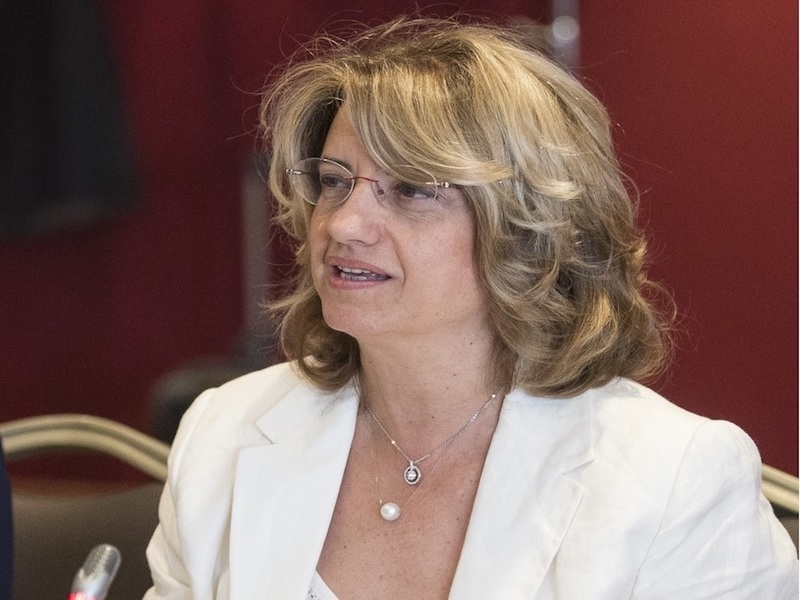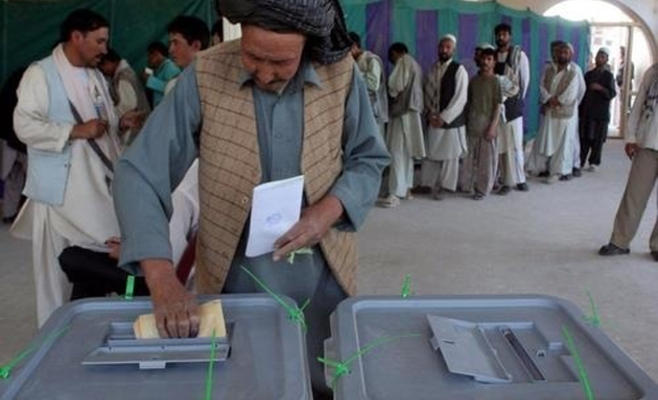2018 marks the 60th anniversary of the NATO Science for Peace and Security (SPS) Programme, one of NATO’s key non-military cooperation initiatives. Senior SPS and Partnership Cooperation Advisor Dr. Deniz Beten answers questions highlighting the Programme’s history, impacts, and how Canadians can get involved.
For those unfamiliar with the NATO Science for Peace and Security Programme, could you briefly explain what it is and its mandate?
The NATO Science for Peace and Security (SPS) Programme offers opportunities for practical cooperation in the areas of security-related civil science, technology and capacity-building, by bringing together scientists and experts from NATO and partner countries. Its mandate is to develop and implement research and development projects as well as capacity-building initiatives, foster knowledge exchange and provide tailor-made, modular training courses.
Overall, the SPS Programme helps to address NATO’s strategic objectives and partnership priorities through tangible, output-oriented collaboration and is flexible and demand-driven in its engagement with partners.
What are some of the current initiatives taking place?
The SPS Programme currently has more than 150 ongoing activities across its range of key priority areas, and many of these make a concrete contribution to key NATO partnership priorities, such as defence capacity building, comprehensive assistance for Ukraine, engaging with the South and projecting stability in NATO’s neighbourhood. Let me just highlight a few of these key initiatives.
Geographically, we have followed the political guidance from NATO Allies and intensified cooperation with Ukraine following the crisis in 2014. This has led to the successful implementation of a number of capacity-building projects with Ukraine, including support in the form of training and equipment for humanitarian demining in Eastern Ukraine, and the development of a multinational telemedicine system that enables first responders on the ground to get medical expertise through satellite technology and has the potential to save many lives in disaster situations. Researchers from Norway and Ukraine are currently also working on an innovative 3D mine detector.
The SPS Programme also has very strong cooperation with partners in the Middle East and North Africa (MENA) region. For instance, we have supported the set-up of a national crisis management centre in Mauritania, we conduct comprehensive Counter-IED training and contribute to related inter-agency-policy development for the Jordanian Armed Forces, and we help to build cyber defence capacity in Morocco through tailor-made modular training courses.
In the Western Balkans, we have for instance launched a flagship project to customize and implement the Next Generation Incident Command System – a technology to facilitate a coordinated emergency response in case of a disaster – in Croatia, Montenegro, Bosnia and Herzegovina, and the former Yugoslav Republic of Macedonia*. The system has been developed by the MIT Lincoln Laboratory and the US Department of Homeland Security Science and Technology Directorate is providing generous financial support to the project.
Our activities also include projects on Women, Peace and Security with partners such as Japan, Australia, and Georgia, as well as projects addressing CBRN defence and developing advanced technologies with security applications that involve scientists from Japan or Israel.
Are there any past research projects that have stuck with you (whether for their innovation, effectiveness, or unique partnership)?
There are many SPS projects that have had a concrete and lasting impact, especially when looking through the lenses of innovation and partnership.
Thinking of innovation, a major SPS flagship project has certainly be the Standoff Detection of Explosive Devices (STANDEX) project. STANDEX was a unique, multinational and innovative programme integrating various new detection technologies to prevent terrorist attacks in public transportation. The technology allows for the detection of explosives remotely, in real time and without disrupting the flow of passengers. It can identify, track and locate any object or person identified as carrying explosives, and can control the triggering of the alarm. The project was completed in 2013, but we have just launched two major new SPS initiatives on explosives detection.
In Ukraine, the SPS Programme also supported a long-term project for the development of an advanced X-ray generator. The cutting-edge technology used in this projects makes it very cost-effective without compromising range or energy levels. The X-rays produced by the machine are needed for high resolution image detection systems, showing how this project contributes to building capacity among the Ukrainian scientific community. A total of 42 scientists, including 18 young researchers contributed to the project.
With regard to effectiveness, I could for example highlight the very successful mélange project. Mélange is a highly toxic, very dangerous and corrosive chemical substance used as rocket fuel. In the early 2000s, the SPS Programme supported the development of a mobile plan to destroy this substance that was stored close to urban areas in Azerbaijan and Uzbekistan. All stocks of mélange rocket-fuel in Azerbaijan and Uzbekistan since the Soviet period – about 2400 tonnes in total – were converted into a non-hazardous, low-grade fertilizer material, using an environmentally safe chemical process. Apart from neutralizing the rocket-fuel in a very effective manner in two partner countries, the project also had a direct impact on the protection of the local population by reducing the risk of chemical accidents involving mélange
Partnerships are integral to all SPS activities, but the SILK Afghanistan project certainly stands out. Named after the Great Silk Road trading route linking Asia and Europe, the SILK-Afghanistan project provided high-speed internet access to 34 public Afghan universities as well as some governmental institutions in Kabul. Over a period of ten years, the project assisted the Afghan authorities in developing their educational system. It became operational at Kabul University in 2006 and concluded in June 2016, following the expansion of the network to the provinces of Afghanistan.
The SPS Programme supports innovation that tackles emerging security threats (terrorism, cyber, environmental, energy etc.) have you found that certain topics have been overtly more popular in applications over others?
Thematically, there is currently a huge interest in cyber defence (quantum technology, big data, etc) and the fight against terrorism (explosives detection, detectors, etc). We launched a special call for proposals in these two fields last year and have a number of top-down proposals that we develop closely with Allies and partners in this area.
We have also noted a rise in applications for SPS projects developing advanced technologies (sensors, nanoscience, unmanned aerial vehicles (UAVs), etc.) and addressing human and social aspects of security, notably the implementation of UNSCR 1325 on Women, Peace and Security.
At the same time, there is currently less appetite for projects in the field of environmental security and we have seen the number of applications and approved activities in this area dropping over the last years.
What mechanisms does the SPS Programme have in place to help facilitate collaboration? I imagine it can be challenging as initiatives are not only between the 29 member states and 41 partner countries, but also between governmental, academic, and expert bodies?
The SPS Programme supports three types of grant mechanisms: multi-year projects, advanced research workshops and training courses. The respective applications forms, as well as our management handbooks for projects and events explaining the modalities and financial aspects of SPS grants can be found on our website: www.nato.int/science.
Indeed, working with so many stakeholders from government, academia and research institutes can be challenging at times. However, thanks to decades of experience, the SPS Programme has well-developed and established processes and experienced staff to accommodate multinational stakeholders. Since we work with representatives from Allied and partner countries on a daily basis, it is possible to address any upcoming challenges at an early stage.
2018 marks the 60th year of the Programme, do you feel the Programme has been successful in fostering scientific cooperation? What are some challenges the Programme has faced?
As you said, we are proudly celebrating the 60th anniversary of the SPS Programme this year. And it is actually in part thanks to a Canadian – former Minister of Foreign Affair, Lester B. Pearson – that the NATO Science Committee was created in 1958. Alongside his colleagues Gaetano Martino from Italy and Halvard Lange from Norway, Pearson was one of the so-called Three Wise Men who proposed areas for non-military cooperation in a NATO Report in 1957, identifying amongst others science. This report eventually led to the creation of the Science Committee.
Over the last decades, the Programme has come a long way and changed its name a couple of times along the way. Constantly adjusting to the changing security environment has of course it challenges, but the Programme always maintained its focus on supporting and strengthening scientific cooperation.
In its 60 years of existence, in the first period from 1958 until the Cold War, the Programme mobilized a large number of scientists in NATO countries with the aim of strengthening the transatlantic link and building solidarity among Allies. The topics addressed at the time focussed on cutting-edge science and state-of-the-art research.
After the opening of the SPS Programme to NATO partners in the 1990s, it has played a pivotal role in engaging scientific communities in the former Soviet Union and former Warsaw Pact countries. Since then, many of these countries have become NATO members and in many cases, the NATO Science Programme supported their integration process.
A few years later, the SPS Programme opened up to all NATO partners and today it is developing increasingly demand-driven capacity building activities in various partner countries. Multi-year projects have a strong focus on the involvement of young scientists, helping to foster scientific exchange among the next generation of researchers.
I am also proud to say that over the years, 18 Noble Prize winners have been involved in the SPS Programme – including Lester Pearson who received the Nobel Peace Prize in 1957. Many of the other Nobel Prize winners benefited from NATO grants, fellowships and collaborative linkage grants in the early stage of their career and show how we cannot only look back at 60 years of successful scientific cooperation, but also scientific excellence.
Could you break down the Programme funding vetting process? Who is eligible to apply?
The SPS Programme provides grants that enable Allied and partner institutions to engage in collaborative, security-relevant activities through three grant mechanisms: multi-year research projects, research workshops, and training courses.
Interested parties can submit an application for funding that fits within one of these formats and that must be led by project directors from at least one Allied and one Partner country, reflecting the partnership value of SPS. Several NATO and partner countries can be involved in a SPS activity and where possible regional cooperation is encouraged. Various non-profit organisations from NATO and partner countries are eligible to receive SPS funding, including for example universities, research institutes, civil society organisations, and government bodies. Private enterprises are not entitled to SPS grants, but may be involved as end-users in suitable SPS multi-year projects.
All applications must directly address at least one of the SPS Key Priorities, have a clear link to security and must contribute towards NATO’s strategic objectives. The SPS Key Priorities cover a wide range of topics, including emerging security challenges such as cyber defence, counter-terrorism, CBRN defence and energy security, the development of advanced technologies with security applications, and the detection of landmines and unexploded ordnance. SPS activities can also support NATO-led missions and operations or address human and social aspects of security, e.g. the implementation of UNSCR 1325 on Women, Peace and Security.
Once an application has been received by the SPS office it undergoes a comprehensive, multi-step evaluation process that takes both technical and scientific as well as political aspects into consideration. Following an eligibility screening, the SPS Independent Scientific Evaluation Group (ISEG) peer-reviews all SPS applications. Composed of subject-matter experts from NATO countries, the ISEG is a multi-disciplinary panel that screens SPS proposals for their scientific and technical merit. Only those activities recommended by the ISEG will move on in the selection process and be presented to Allies in the Partnerships and Cooperative Security Committee (PCSC). The PCSC is the final approval body for all SPS activities and looks amongst others at their political and partnership value as well as their link to security and NATO’s strategic objectives.
Given this thorough review process, please take into consideration that a decision on funding can take up to 9 months following the submission deadline. There are two to three application deadlines per year and the next one has been set for 1 October 2018. I invite you to visit our website for further information about the SPS Programme and to download the application forms
Thank you so much for your time! In closing, do you have any recommendations for Canadians who wish to get involved with innovation initiatives in security (are there any events or other organizations you could recommend?)
I would invite Canadian scientists interested to become involved in the SPS Programme to apply in collaboration with a partner country expert! Our next application deadline will be 1 October 2018, and you can find SPS-related news, applications forms and guidelines as well as further information about the grant mechanisms and SPS key priorities on our website www.nato.int/science.
The website also contains an interactive map which shows you some examples of SPS-supported activities around the world. Canadian scientists may also find the calendar of upcoming events and the overview of SPS-supported publications interesting.
Last but not least, please follow us on Twitter @NATO_SPS for latest updates of ongoing projects.
Thank you for the interview, it has been a pleasure.
*Turkey recognizes the Republic of Macedonia with its constitutional name.
Photo: Dr. Deniz Beten (2017), courtesy of the NATO Science for Peace and Security Programme
Disclaimer: Any views or opinions expressed in articles are solely those of the authors and do not necessarily represent the views of the NATO Association of Canada.




